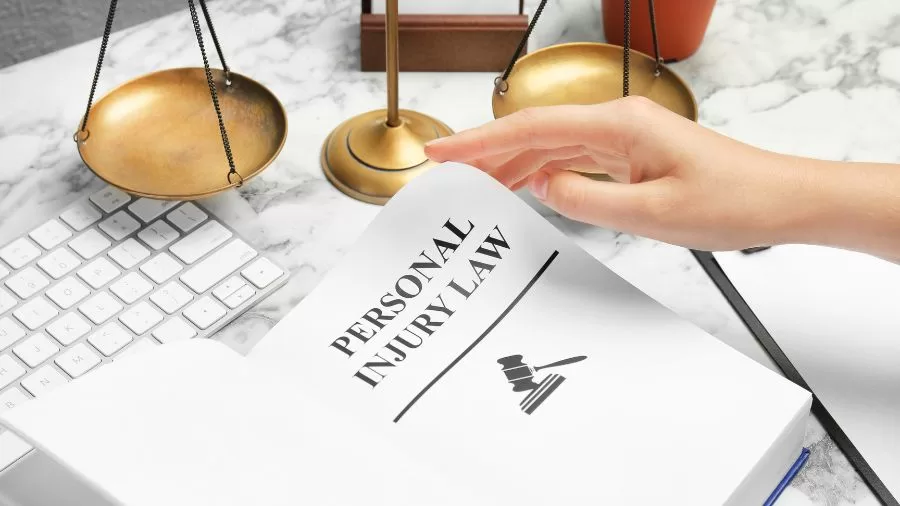Health
The True Financial Cost of a Personal Injury — And How to Recover What You Deserve

A personal injury is not only painful, it’s also disruptive. While you’re focusing on healing physically and emotionally, there’s another challenge growing in the shadows: the enormous financial burden that injuries come with. Hospital bills. Missed paychecks. Long-term care. It adds up fast, and without a solid plan in place, it can derail your future.
If you’ve been coping with the aftermath of a personal injury, you’re owed every last cent that is yours. Let’s break down the actual dollar value of a personal injury, and more importantly, how to fight back and restore.
The Hidden Financial Toll of Personal Injuries
When most people think about personal injury payouts, the first thing they think of is paying for some doctor bills. Reality check: the costs go much deeper.
This is where the financial impact most seriously comes into effect:
- Medical Expenses: From the cost of emergency room care and surgeries to rehab and ongoing treatments like physical therapy, medical costs add up faster than you might think.
- Lost Income: Recovery translates to weeks—or even months—of lost income. In more severe cases, victims end up with permanent disability that impacts their capacity to ever work at all..
- Other Out-of-Pocket Costs: Factor in transportation to doctor appointments, home modifications, and the employment of assistants for daily care. Every little bit adds up.
According to the Centers for Disease Control and Prevention (CDC), the U.S. economic cost of injuries reached a staggering $4.2 trillion in 2019 alone. And that’s not just hospital bills—it’s wages lost, rehabilitation costs, and emotional suffering too.
How to Start Your Financial Recovery After an Injury
You can’t control that the injury happened. But you can control how you respond to it. Here’s what you need to do to recover financially:
1. Document Absolutely Everything
Every doctor visit, every prescription, every therapy appointment, and every paycheck forfeited counts. Be meticulous with your day-one records—doctor bills, employer letters, insurance mail, and receipts for home care costs. Solid proof creates solid claims.
2. Work with the Best Personal Injury Attorney
Insurance companies aren’t your buddies. Their job is to pay quickly and cheaply. Your job is to fight for what you’re rightfully owed. That’s why you need someone who knows how to extract the most money you deserve and protect your rights.
With the best personal injury attorney on your side, you’re not leaving thousands, and maybe millions, on the table.
An experienced lawyer will:
- Accurately calculate all current and future costs
- Negotiate aggressively with insurance companies
- Represent you in court if necessary to win full damages
3. Explore Every Avenue for Compensation
You’re entitled to more than just reimbursement for medical bills. A complete personal injury settlement often includes:
| Type of Compensation | Examples |
|---|---|
| Medical Expenses | Surgeries, hospital stays, medications, rehab |
| Lost Wages | Income lost while recovering |
| Reduced Earning Capacity | If you can’t return to your previous job |
| Pain and Suffering | Physical pain, emotional trauma, PTSD |
| Punitive Damages | In cases of gross negligence |
Don’t settle for less. The law is on your side if you have the right team fighting for you.
4. Consider Structured Settlements
In certain cases, receiving your compensation through a structured settlement (small payments over time rather than a lump sum) can provide long-term financial security, especially when injuries have lifelong impacts.
A trusted attorney can advise if this is the right path for your situation.
Why Legal Representation Changes Everything
In certain cases, receiving your award as a structured settlement (periodic payments over many years rather than a lump sum) can provide long-term financial security, especially when injuries are permanent.
Working with the best personal injury attorney doesn’t just level the playing field, it gives you a serious advantage. You’ll have someone who:
- Calculates true damages, not just surface costs
- Handles aggressive negotiations with insurers
- Represents you fiercely in court if needed
In a system stacked against the victim, having the right attorney can mean the difference between financial ruin and financial recovery.
Conclusion
The financial impact of a personal injury extends beyond immediate costs, potentially affecting long-term financial stability. With full knowledge of the entire scope of possible costs and with consultation of professional legal assistance, victims have a greater likelihood of recovering financially.
Note: This article is intended for informational purposes only and does not constitute legal advice. For personalized guidance, consult with a qualified personal injury attorney.



















































